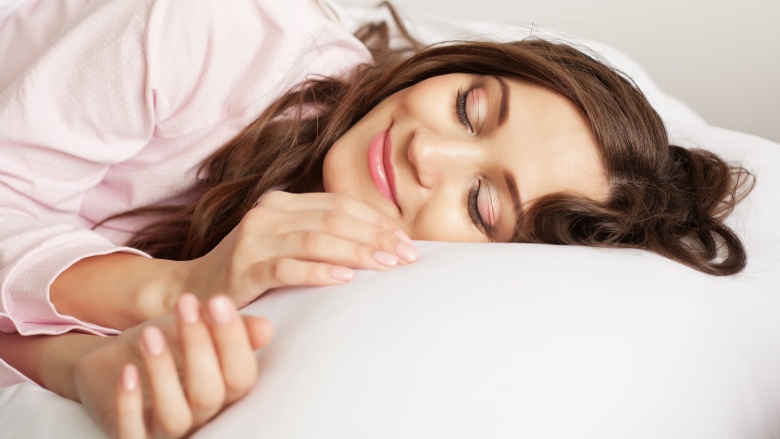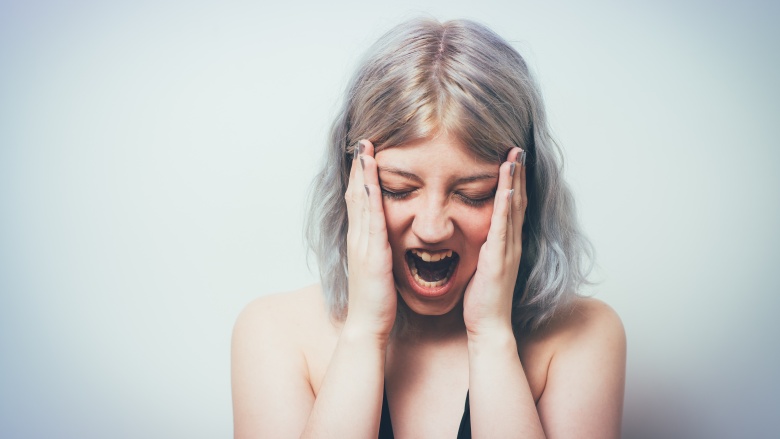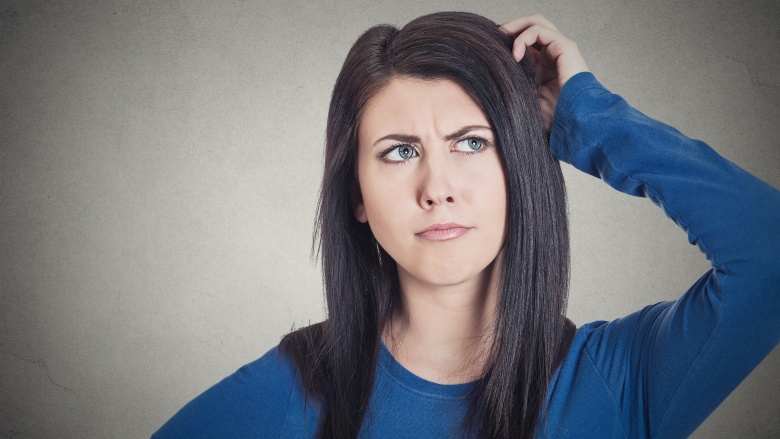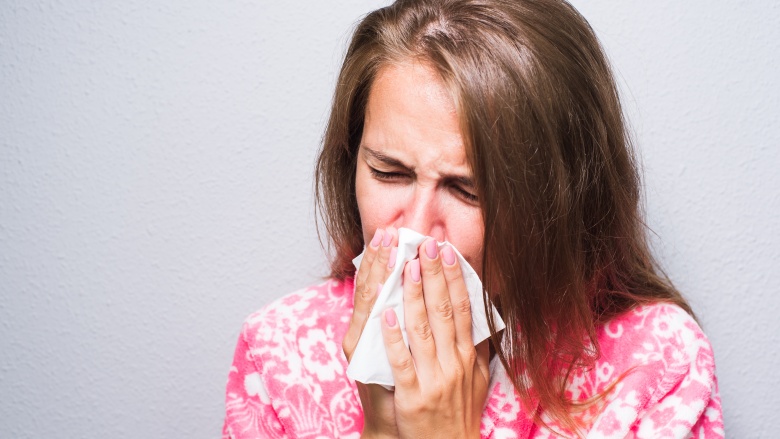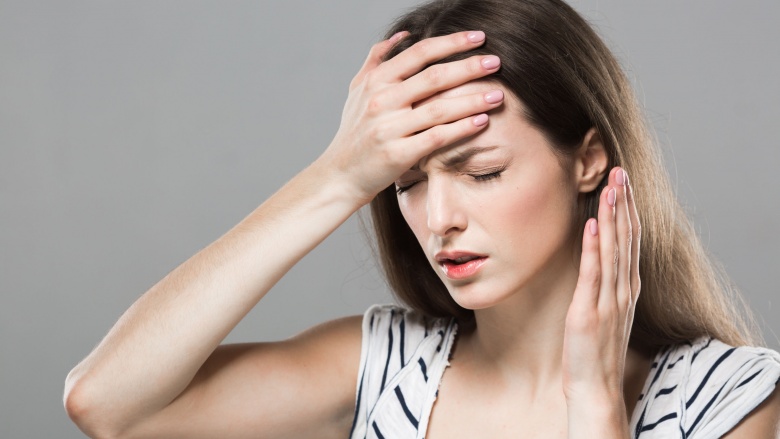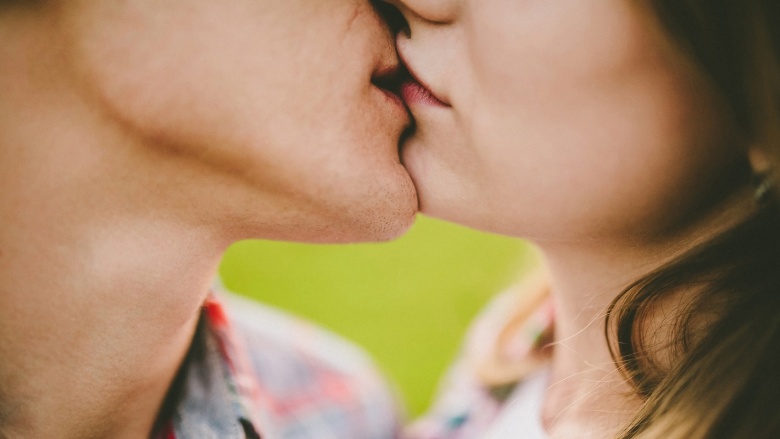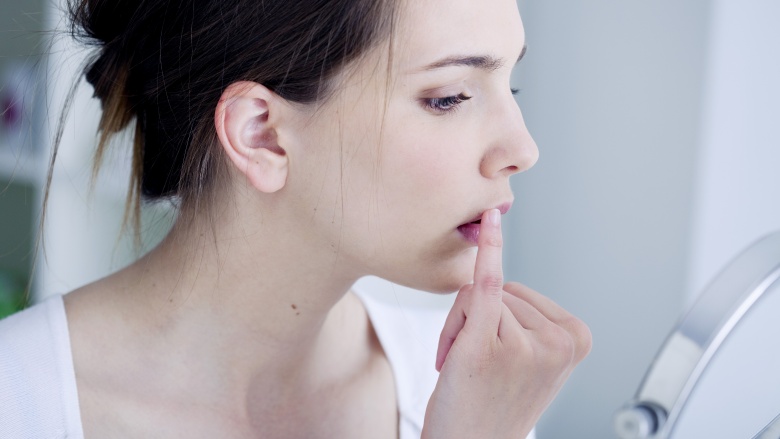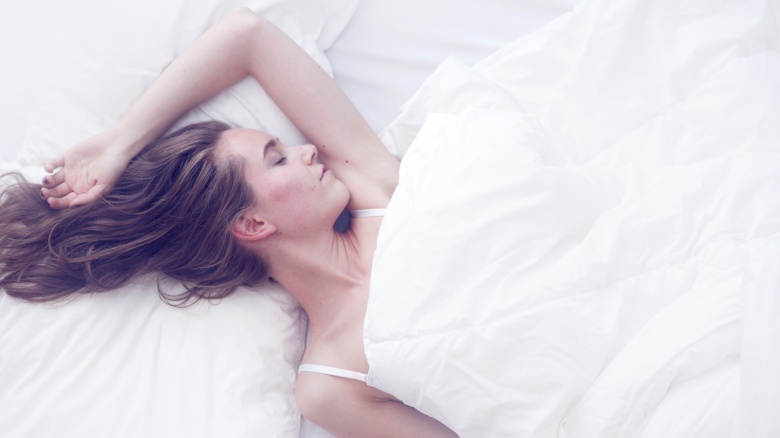What Really Happens To Your Body When You Don't Sleep
There's not much that's more satisfying than getting into bed after a long, tiring day. There's also nothing more frustrating then lying there, wide awake, waiting for sleep that never comes. And it's not just annoying. Lack of sleep can be very damaging to your body, too. "Sleep helps the brain cleanse and refresh itself," Dr. Daniel Amen says. "Without adequate sleep many of our body systems can fail to function properly. The brain's cleaning fluid system turns on while we sleep." So what exactly happens to our bodies when we don't get the shut-eye we need? Keep reading to find out what the experts had to tell us.
How much sleep is enough?
We all have a different idea of how much sleep we need — and how little we can get by on. But how much is really enough? According to a study conducted by the National Sleep Foundation, young adults and adults need 7-9 hours of sleep each night, and older adults need 7-8 hours. When we get less sleep than we need, our bodies tend to react, and not always in the ways you might think.
Irritability
We all have grumpy days, but if we haven't had enough sleep, we might not be totally at fault for our moods. Clinical psychologist Dr. Yelena Chernyak says loss of sleep can lead to irritability in the short term. One night of minimal sleep may lead to a much shorter fuse the next day, but the repercussions are even worse if not enough sleep is an ongoing issue. Chronic loss of sleep has been shown to lead to mood disorders like anxiety and depression, which can make your temporary mood swings a lot more long-lasting.
Cognitive issues
If you find yourself having a hard time paying attention or learning new things, your lack of sleep may be the cause. Dr. Chernyak tells us if you don't get enough sleep, you may experience attention and learning problems. It's no big deal to zone out every now and then, but if you find yourself unable to concentrate more than usual, you may need to work on catching a few more Zs at night.
Poor judgement
It's not a big deal to make a bad decision every now and then. It's part of life, right? But you're way more likely to have one of those days if you haven't been getting enough sleep. According to Dr. Daniel Amen, too little sleep often leads to poor judgment and impulse control issues. Some studies have even said people who have been missing out on sleep are comparable to people under the influence of alcohol when it comes to impulse control. We all know how likely we are to make bad decisions after having one too many — do you really want that state of mind to be your norm?
Jyothi Rao, MD, co-author of Finding Balance: Empower Yourself With Tools to Combat Stress and Illness, agrees, saying, "Six-hour sleepers in one study were as impaired as those who had been sleep deprived for 24 hours straight — the cognitive equivalent of being legally drunk."
Higher risk of infection
It's no fun to be sick. We go out of our way to stay away from those that may be contagious and to not touch doors in the doctor's office, doing anything we can to not catch those nasty germs, but clinical psychologist Dr. Yelena Chernyak says those germs are likely to catch up to if you haven't been sleeping. She says not getting enough sleep makes you "at a higher risk of infection, due to reduced antibodies." And the news gets even worse. When you aren't sleeping and inevitably get sick, you're going to take even longer to bounce back to normal.
Obesity
No matter what steps you're taking to whittle away your waistline, too little sleep could be thwarting your efforts. Dr. Chernyak says people who suffer from a long-term lack of sleep are at an increased risk for being morbidly obese. This is at least partly due to the fact that over-tiredness leads us to want food even when we're not hungry, and to care less about the consequences of the food we eat — not a great combination.
To make matters worse, it also stops you from getting back into shape. "Many sleep-deprived people are unable to lose weight in spite of restricting their calories. Sleep deprivation slowed down fat loss by 55 percent [in one study] compared to a control group with similar caloric intake," said Jyothi Rao, MD, co-author of Finding Balance: Empower Yourself with Tools to Combat Stress and Illness.
Cardiovascular disease
Women are already at a higher risk for cardiovascular disease, so it's pretty alarming that clinical psychologist Dr. Chernyak tells us that not enough sleep can make your risk even greater. In fact, one study concluded that those who sleep less than six hours a night are twice as likely to suffer from cardiovascular disease as those who get an adequate amount of sleep each night. Get that shut-eye — if not for your head, for your heart.
Diabetes
Unless finger pricks and insulin shots sound like your idea of a good time, it's time to start heading to bed a lot earlier. Dr. Chernyak warns that sleep deprivation can increase your risk of developing diabetes. There are a few reason why experts think not getting enough sleep can make you susceptible to diabetes, and one of them is that when you're tired, you tend to eat more because your body is craving energy. Obesity can lead to diabetes, so the two go hand-in-hand. Being overly tired can also mimic insulin resistance, which is one of your body's first signs of diabetes. It doesn't take long for the tiredness to take effect, either. "Sleep deprivation for as little as a week has been shown to cause changes in the body that can mimic the insulin resistance seen in Type 2 diabetes," said Jyothi Rao, MD. Get more sleep and pay better attention to your diet to reduce your risks.
Higher risk of stroke
Dr. Chernyak says missing too much sleep can increase your risk for stroke, and the really scary part is that can be true even if you have no other risk factors. Some of this is attributed to hormones and chemicals your body produces when it's in a sleep-deprived state that make you more likely to suffer from strokes, which occur when the blood flow to the brain is blocked. Strokes are nothing to mess around with — they're one of the leading causes of death in the United States — so this is a warning you should take seriously.
Lower sex drive
A lower sex drive doesn't just ruin your fun, it can also ruin your relationship. But it may be true that all you need to turn up the heat between the sheets is to get more sleep there, too. One 2015 study found that when women slept just an hour more each night, the chances of them having sex with a partner the next day increased by 14 percent. If just one hour can work that much magic, imagine what a few extra hours a night can do for your libido.
Skin side effects
Slacking in the sleep department doesn't just effect you on the inside — it's reflected on the outside, too. "They don't call it 'beauty sleep' for nothing," says Dr. Alan J. Parks, dermatologist and founder of DermWarehouse. "Not only will a lack of sleep affect your body and brain, it will also affect your skin. There's nothing worse than waking up after a terrible night's sleep and looking in the mirror. Your skin looks dull, you have bags under your eyes, and every blemish and imperfection seems to be at its worst. When you're tired, your skin looks tired. Not getting a proper night of sleep will not only lead to dryness, irritation, and increased skin sensitivity, persistent sleep deprivation will also lead to lines and wrinkles down the road." There's no faking that well-rested glow, so get some shut eye — and wake up gorgeous.
Get some sleep
Now that you know the repercussions of missing too much sleep, it's time to start doing what you can to make a good night's rest happen. Dr. Daniel Amen shared his best trick for getting to sleep at night, saying, "Create a daily bedtime routine. It can be as simple as brushing teeth then reading a book. But keep the reading to no more than 20 minutes, not two hours!" He also suggested ditching your cell phones and tablets an hour before bedtime, since the blue lights from their screens slow down the production of melatonin. And if that doesn't work, he has an old school suggestion: "A small glass of warm milk with a teaspoon of vanilla and natural Stevia can help promote sleep."


